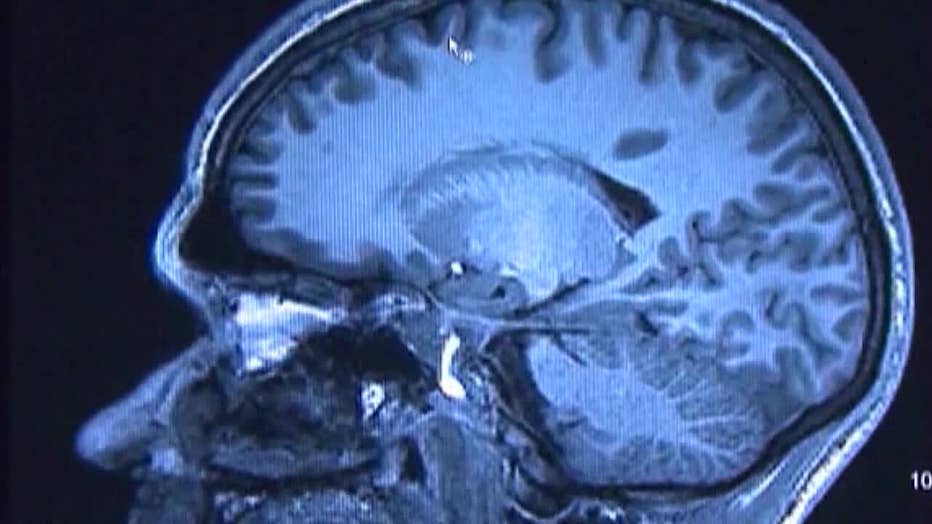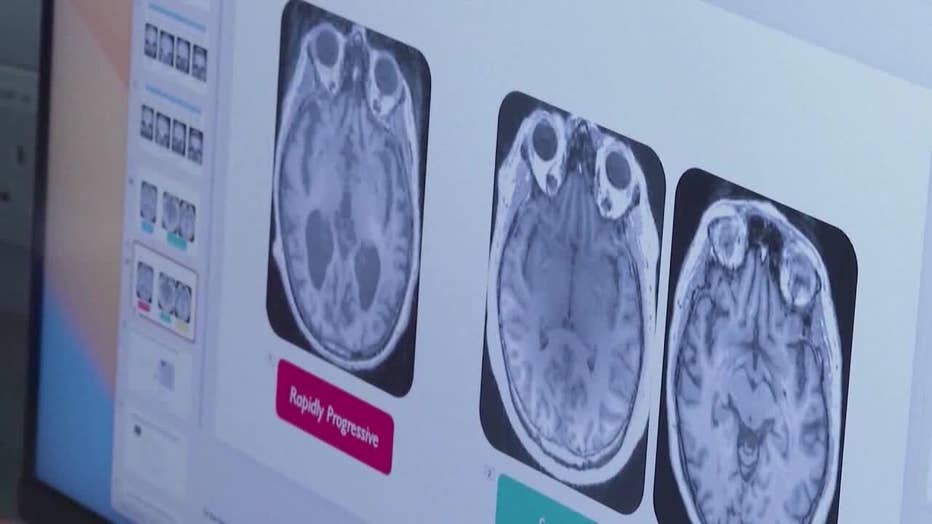New Alzheimer's report shows an increase in cases, desire for early detection

New Alzheimer’s report shows an increase in cases
The Alzheimer’s Association’s 2025 facts and figures report, which was released on Tuesday, shows that 7.2 million people in the United States are now living with the disease.
DALLAS - More than 7 million Americans are now living with Alzheimer’s, according to a new report.
Alzheimer’s in Texas

By the numbers:
The Alzheimer’s Association’s 2025 Facts and Figures report, which was released on Tuesday, shows that 7.2 million people in the United States are now living with the disease.
More than 459,000 of those people live in Texas.
Sadly, more than 10,000 Texans died last year from Alzheimer’s.
And more than 1 million people in Texas are providing unpaid care for a suffering family member.

What they're saying:
"These are Texas residents that are unpaid family caregivers and why are trying to do is promote and educate as much as we can for those. It’s almost as if they’re unsung heroes for those caregivers of the people being diagnosed with Alzheimer’s and other dementias," said Tracy Denton, the regional vice president and executive director for Alzheimer’s Association Dallas and Northeast Texas.
Dig deeper:
A survey of adults by the association also found that about 79% of Americans want to know if they have the disease before symptoms present and about nine in 10 people would take a blood test to show a diagnosis if it were available.
"We’ve got blood tests that are getting better and better and really good at telling you who does not need a scan. At some point in the near future, I expect primary care doctors to have a blood test to say, ‘You know what, you’re fine. Let’s not worry about Alzheimer’s Disease. We’ll take a test again next year,’" said Dr. Sid O’Bryant, who leads the national Alzheimer's research at UNT Health Science Center Fort Worth.
Featured
Fort Worth research lab's multimillion-dollar robot could help diagnose Alzheimer's disease earlier
Without a patient having to wait to see a specialist, the robot can run approximately 3.9 million tests per year on a specific blood sample versus manually running about 486,000 per year.
Roughly 92% said they would take medication to slow the progression even if it carries a moderate or high risk.
O’Bryant believes that’s the key to developing drugs that have better outcomes.
"We can’t even advance the science without people getting involved. And so now, the community is saying here’s what we want. And as a scientist and as a health care provider, it’s our job to say, ‘Alright, we’re going to do this,’" he said.
Greater awareness of the insidious disease is increasing the desire to have every chance against it, he said.
The Source: The information in this story comes from the 2025 Alzheimer’s Disease Facts and Figures report by the Alzheimer’s Association, as well as interviews with Tracy Denton from the Alzheimer's Association Dallas and Dr. Sid O'Bryant at UNT Health Science Center Fort Worth.


